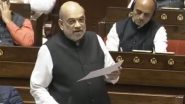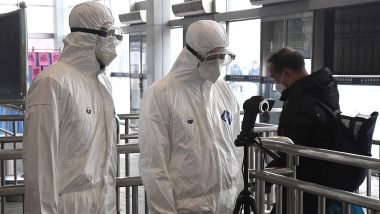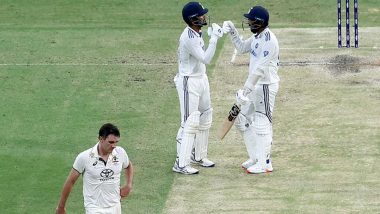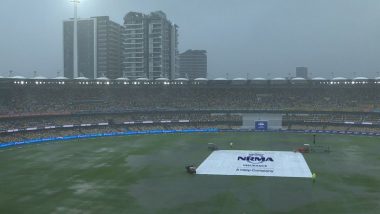Paris, April 28: France and Spain, two of the worst-hit countries in the coronavirus pandemic, were laying out separate roadmaps Tuesday for lifting their lockdowns, while signs emerged the virus has been all but vanquished in New Zealand and Australia. But on the other side of the globe, Brazil is emerging as a new hotspot for infections. And new doubts were raised over whether Japan would be able to host the already postponed Summer Olympics next year without the development of a vaccine.
In Europe and elsewhere, the key question of when to reopen schools loomed as nations seek to ease lockdowns and restart their battered economies. Although the coronavirus seems to affect children far less seriously than adults, many officials, teachers and parents are concerned about the health risks that school openings pose. Some point to the difficulties of ensuring that children stick to social distancing and frequent hand washing, and teachers themselves fear risks to their own health. Coronavirus Lockdown in Spain: Curbs Lifted, Children Return to Streets After 44 Days of Home Confinement.
But many parents would struggle to return to work without schools being open, hampering efforts to restart the economy. In France, President Emmanuel Macron wants schools to start reopening May 11, but teachers, parents and even some mayors are raising alarms. The government says it will be up to parents to decide whether to send children back to class, with details expected to be released by the prime minister later Tuesday.
Joel Wilmotte is among a growing number of French mayors refusing to re-open their schools, at least for now. “I am not against the reopening of schools,” he said in a video on the Facebook page of his northern town of Hautmont. But he listed seven reasons why he's not ready to do so.
Among them: Teachers don't know how to make sure every child respects protective gestures and a poll suggests most French parents oppose school reopenings. Cleaning staff are afraid and under-equipped to do constant disinfections.
So Wilmotte said he's keeping the six schools in his town closed “until further notice.” Greece, which so far has managed to keep its coronavirus death toll low, at 136 people, was also releasing more lockdown easing details Tuesday but the issue of schools remained tricky.
Schools will be reopened “gradually, with conditions” and subject to constant review, said the Health Ministry's virus spokesman, infectious diseases specialist Sotiris Tsiodras. The team of experts he is on has not recommended a date. Scientists agree that children are less at risk from the virus and appear to transmit it less than adults, said Tsiodras, a father of seven.
“This is not an experiment where we want something bad to happen to our children. It is a scientific proposal. We propose, the state will decide.” In the United States, which has the world's highest death toll at more than 56,000, President Donald Trump said states should “seriously consider” reopening their public schools before the end of the academic year, even though d ozens already have said it would be unsafe for students to return until the summer or fall.
“Some of you might start thinking about school openings, because a lot of people are wanting to have the school openings. It's not a big subject, young children have done very well in this disaster that we've all gone through,” Trump said. Trump also admitted the number of virus deaths could reach 70,000 in the U.S., after citing 60,000 several times this month.
The number of confirmed infections in the U.S. has risen to nearly 1 million and the confirmed death topped 211,000, according to a tally by Johns Hopkins University. The true toll of the pandemic is likely much higher because of limited testing, mild cases that are missed, flaws in counting the dead and governments that may be trying to conceal the extent of their outbreaks.
Italy, Spain, France and Britain accounted for more than 21,000 virus-related deaths each. In Brazil, President Jair Bolsonaro has insisted that COVID-19 is just a “little flu” and there is no need for the type of restrictions that have slowed the infection's spread in Europe and the U.S. but upended their economies.
Brazil, Latin America's most populous country with 211 million people, has reported 4,600 deaths and 67,000 confirmed infections. But the true numbers are believed to be vastly higher given the lack of testing and the many people who haven't sought hospital care.
Medical officials in Rio de Janeiro and at least four other major cities have warned that their hospital systems are on the verge of collapse or are too overwhelmed to take any more patients. There are also signs that a growing number of Brazilian victims are dying at home.
“We have all the conditions here for the pandemic to become much more serious,” said Paulo Brandão, a virologist at the University of Sao Paulo. Bolsonaro has said Brazilians need to resume their lives to prevent an economic meltdown but most state governors have adopted restrictions to keep people home and slow the spread of the virus.
New Zealand reported just three new infections Tuesday. Prime Minister Jacinda Ardern said people had done an incredible job of breaking the chain of transmission but cautioned they needed to remain vigilant.
“There may still be some smoldering ashes out there, and they have the potential to become a wildfire again, if we give them the chance,” she said, quoting a microbiologist.













 Quickly
Quickly




















